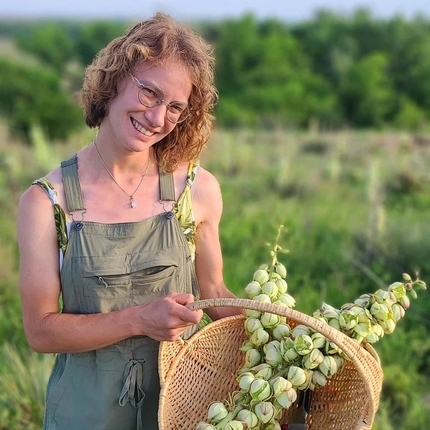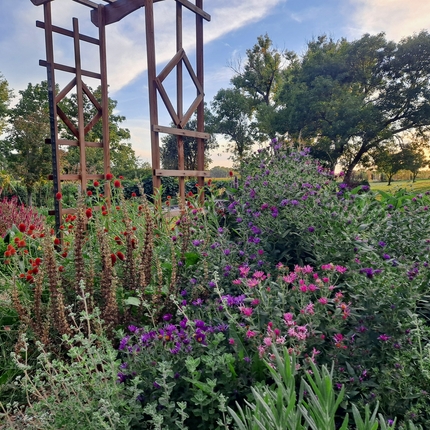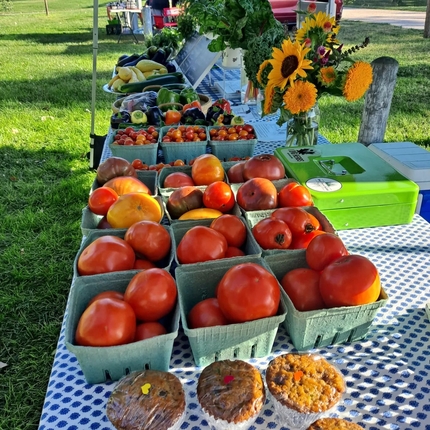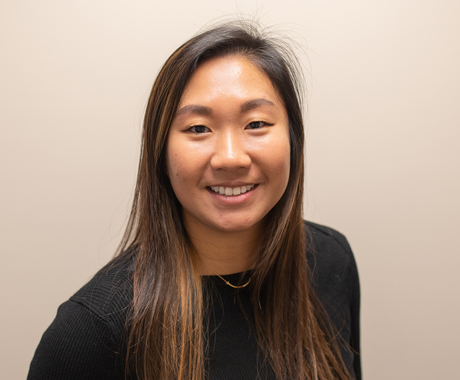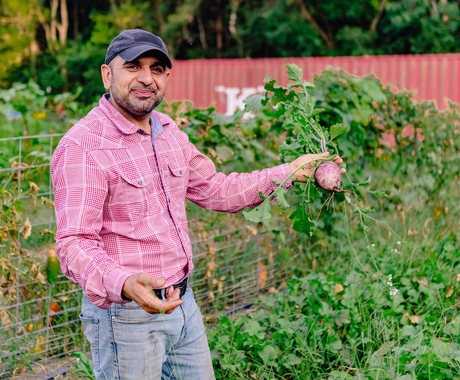Cait Caughey contributed to this story.
From a passion project to healing therapy, Sara Brubacher’s interest in plants, food, and farming has evolved over the past few years. Now, she’s using her knowledge to run her own herbal clinic, Starflower Botanicals.
Two years ago, Sara moved to Cambridge, Nebraska, from Ontario, Canada, to be closer to her mom. She brought along her interest in growing local foods and started farming outside of Cambridge at Sky Chief Springs, which her family purchased in September 2021.
“As an adult at university, I became more interested in local food as a response to the global climate change and the injustices of the food system,” said Sara. “That sparked my interest in local medicines and is why I got into herbalism and became engrossed in that.”
Sara’s interest grew even deeper when she needed to do her own psychological healing upon returning home from doing peace work in the Middle East. She found gardening and growing to be grounding, healing activities.
“I hope that part of my growing or farming can be a place where folks can come and interact and just be with the plants,” Sara said. “I designed a walkway that includes native and pollinator species so people can experience the healing, live energy of the plants. I want people to interact with the plants that they come to know and utilize in my herbal clinic.”
She also wanted to learn more about conservation practices she could implement on her farm, so Sara applied for and was accepted into the Center for Rural Affairs Beginning Farmer Conservation Fellowship Program.
The program began in 2022 with eight individuals, plus mentors. The second cohort began in February 2023 with eight beginning farmers, including Sara.
At Sky Chief Springs, Sara raises a variety of fresh culinary herbs and medicinal herbs for use in her herbal clinic, plus heirloom variety vegetables. She also sells her herbs and vegetables at the local farmers market in Cambridge, and has done a pre-order subscription box offering pick-up in a nearby town.
“I love growing lemon balm, and I grow five different varieties of basil, including holy basil,” she said. “I am known at the market for having fresh herbs and greens. Customers love the cherry tomatoes and cucumbers most of all.”
Program fellows also design and implement a conservation project on their own farms or land they are farming. They present their findings at a farm tour to their mentors, project partners, and other beginning farmers.
Sara’s project includes designing, growing, and planting a native and pollinator garden around the perimeter of her vegetable garden. All of the species are pollinator plants that are either native or medicinal. They are planted along a walkway that leads to her clinic door, and she does not use any pesticides on them.
“I look at my project as an opportunity to teach people about the beauty of our native plants and see the benefits to pollinators,” Sara said. “It is an example for people to learn at home. It also attracts pollinators that can support my vegetable garden and regenerative growing.”
For her project, she researched what types of growing conditions were better for her plants as far as soil type, moisture, shade, and sun. Sara also analyzed the soil and the sun and shade cover, researched the bloom times of the species, and grouped them together accordingly.
“I wanted to make sure I was planting things so I had blooms all season long,” she said. “The earliest bloomers are the shrubs. I also chose based on what was regional and what I had access to. I grew 70% of the plants from seed myself for the pollinator and native garden.”
As a beginning farmer, Sara says it’s been important to her to incorporate conservation practices into her plans from the start, which has helped her save time. And having a mentor to guide her along the way has been extremely helpful.
“This way I didn’t have to backtrack and redesign, especially with pollinator plantings and co-planting,” she said. “As a first-year farmer I had so many questions, and my mentor made all the difference.”
After completing the fellowship program, Sara has big plans for Sky Chief Springs, including growing more herbs for her clinic to make teas and other simple herbal products available to her community, as well as having an extensive vegetable garden.
“I am seeing a lot of interest here in teaching classes for people to grow their own herbs and vegetables, why to grow heirloom varieties, seed saving, and even healthy cooking classes,” said Sara. “I want to encourage more people to grow, and to explore wild spaces and wild harvesting. I am a big fan of that, and it’s so important to me to help folks get outside of cultivated spaces.”
The Beginning Farmer Conservation Fellowship is a program of the USDA-NRCS under agreement number NR223A750003C004 Conservation Outreach: Equity Conservation Cooperative Agreements.

